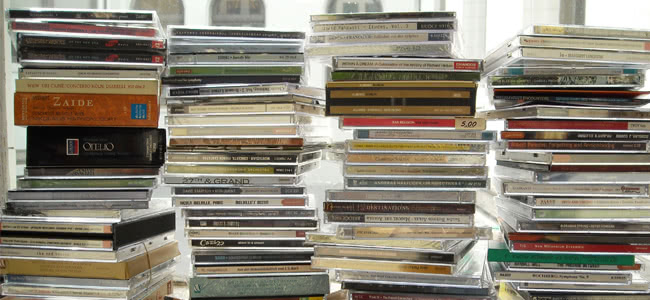If you were a young band struggling to stand out from the crowd, would you directly pay a journalist to write about your music? Say, for a rate of $12.67 per song?
What about the flipside – if you’re a music critic or figure of media influence, would you sell your opinion and feedback to a budding young artist seeking it? Charging around $3 to $4 per minute for the privilege?
If the answer to this pair of hypothetical questions is an emphatic ‘where do I sign up!?’ then you need to point your web browser to Fluence.
The fledgling digital venture (launched 2012 and only has roughly 480 followers on Facebook and Twitter) is designed as an online platform where creatives and critics can connect. Fluence describes itself as a “global base of curators, bloggers, experts, advisors, investors, writers, promoters, agencies, and others who can help you promote your media or give you constructive feedback.”
If your response was less ‘that sounds practical’ and more ‘hang on, is that ethical?’ – then you’re not alone.So who’s providing the reviews? A database which (at risk of naming and shaming) includes founders of prominent online music websites, freelance bloggers and journos, music producers/songwriters/execs, and even former members of The Mars Volta. Each willing, for a fee, to listen to emerging artists who upload their music and offer their opinion.
Aside from networking, the mutual appeal for both parties is fairly obvious. For music-makers, they offer up their work with the knowledge that it will actually be listened to and given a response, or as the website puts it “DIY PR: a more affordable way to manage your promotional outreach.”
For music critics it offers pay for services in a competitive industry that (it’s no secret) doesn’t have many paid opportunities, as well as the added benefit of stroking ego and even alleviating guilt for music diehards who “are overwhelmed with massive amounts of media being promoted to them,” as Fluence puts it.
Love Music?
Get your daily dose of metal, rock, indie, pop, and everything else in between.
Let’s return to those opening questions once more – if your response was less ‘that sounds practical’ and more ‘hang on, is that ethical?’ – then you’re not alone.
In her latest ‘Social Anxiety’ column for The Fader, Emilie Friedlander recounts stumbling upon Fluence after a “music journalist friend” was essentially bribed by to write about a band. “You don’t need to take Journalistic Ethics 101 to know that accepting money from potential writing subjects is probably the biggest faux-pas that a writer can make,” writes Friedlander. “But I was shocked when one commenter pointed out that there is ‘a whole platform set up to pay journalists to listen to their stuff’.”
Friedlander details trialling the Fluence experience for herself as an ‘influencer’, while analysing the pros and cons of the service from both sides of the camp.
Ultimately, what Fluence represents is just as intriguing as what it actually does.As well as lamenting the state of indie music, which “seems to have fallen prey to the very utopian belief that anybody who makes music has a chance of turning it into a public-profile, money-making career,” she acknowledges that the “unique appeal” of Fluence is that it speaks to the “idea that you can bypass steep PR costs to get the gatekeepers of the internet to listen to your stuff.” But is disheartened with the fact Fluence still centres around “the logic that artists have to spend money to make money.”
Especially when the ‘influencers’ offering their critical acumen and feedback (for the majority) seem to already have a day job in that field, probably using Fluence for some extra pocket money.
Her thought-provoking piece for The Fader is well worth a read for anyone looking at subscribing to what Fluence offers – even if that means putting a price on your music or opinion (literally, in the latter – account holders set their own rates).
Ultimately, what Fluence represents is just as intriguing as what it actually does. Finding a niche in today’s music landscape, where a ‘successful’ career in music seems to be as much about marketability and social media presence as it is about talent and credibility, and filling it with a pretty fascinating (and we’ve gotta admit, user-friendly) business model.
As for whether Fluence really offers the extra ‘edge’ for artists looking to stand out (or trial something ‘on the cheap’) from the sound-alike crowd while acting as a financial saving grace for journalists, or is simply an exploitative structure that undersells the qualities and attributes of both musician and critic – well, it might be too early to offer a damning judgement either way, but you can be sure once word of Flunce gets out, the jury wont’ be.

































